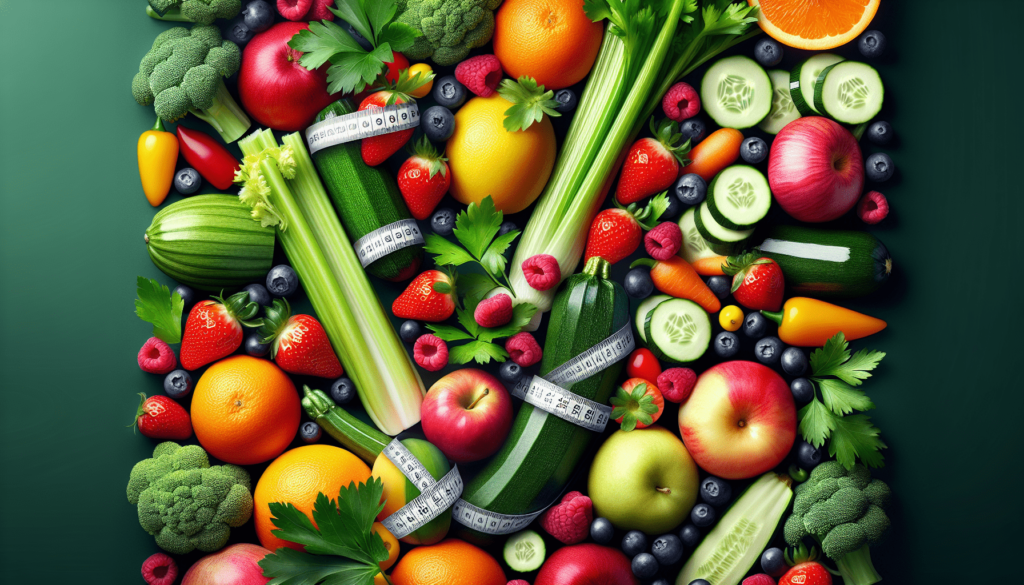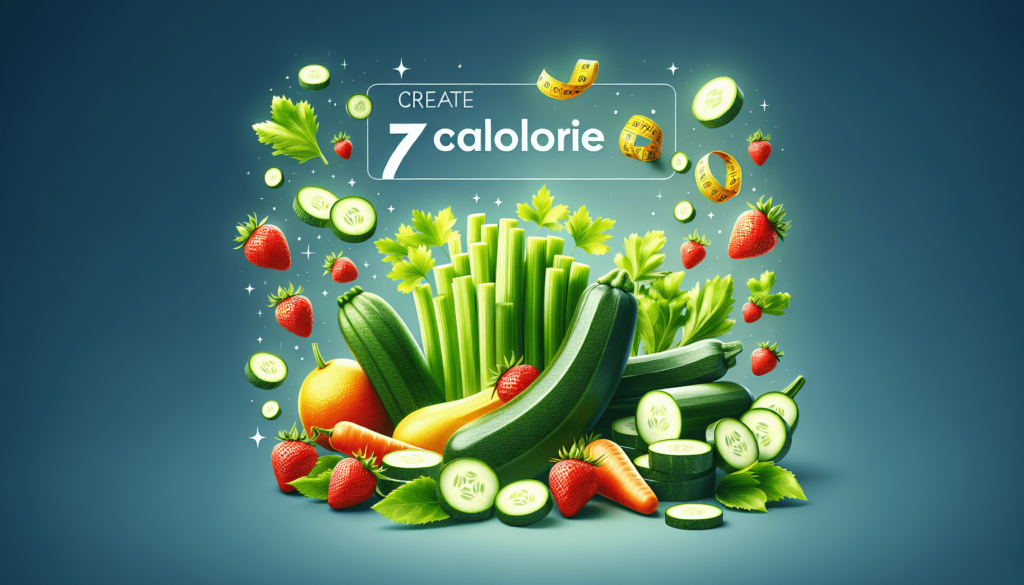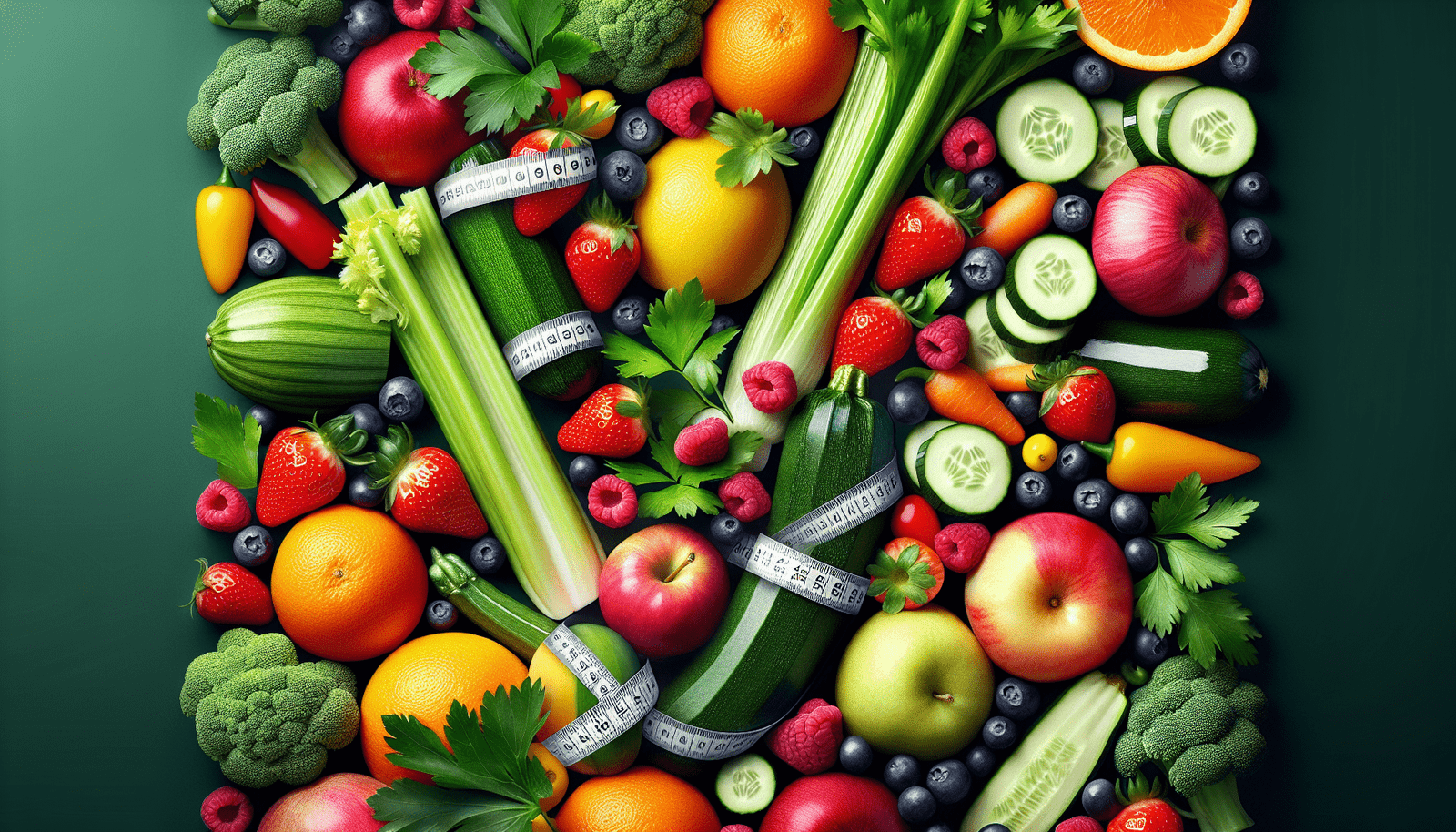Curious about zero-calorie foods and whether they are too good to be true? In this article, you’ll explore the truth behind the hype surrounding these mysterious eats. Learn about the science behind zero-calorie foods and discover if they are truly guilt-free options for your next snack or meal. Dive into the world of zero-calorie foods and separate fact from fiction to make informed choices about your diet. Have you ever heard of zero-calorie foods? Are they too good to be true, or are they actually a helpful option for weight management? Read on to uncover the truth behind zero-calorie foods and how they can fit into your diet.

What Are Zero-Calorie Foods?
Zero-calorie foods are foods that are said to contain so few calories that the body burns more calories digesting them than they provide. These foods are often low in carbohydrates and high in fiber, leading to the belief that they have a negligible impact on overall calorie intake.
Examples of Zero-Calorie Foods
- Celery: With its high water content and fiber, celery is often touted as a zero-calorie food.
- Cucumbers: Another high-water content vegetable, cucumbers are often considered a low-calorie or zero-calorie option.
- Lettuce: Leafy greens like lettuce are low in calories and high in fiber, making them a common choice for those seeking zero-calorie options.
Zero-calorie foods are typically fruits and vegetables that are high in water content, fiber, and essential nutrients. While they may not truly be “zero” calories, their low energy density can still make them a valuable addition to a healthy diet.
The Truth About Zero-Calorie Foods
The concept of zero-calorie foods can be a bit misleading. While some foods may technically have very low caloric content, it’s important to remember that all foods contain some calories.
Caloric Content of Zero-Calorie Foods
- Celery: It is often cited as having negative calories due to the energy the body expends digesting it, but it still contains a small number of calories.
- Cucumbers: While very low in calories, cucumbers still provide some energy to the body.
- Lettuce: Despite its minimal caloric content, lettuce does contribute some calories to your diet.
While zero-calorie foods can be a helpful addition to a weight loss plan due to their low energy density, it’s essential to remember that they are not truly zero calories. By incorporating a variety of these foods into your meals, you can create a more balanced and satisfying diet.
Incorporating Zero-Calorie Foods Into Your Diet
Now that you know the truth about zero-calorie foods, you may be wondering how to incorporate them into your diet effectively. Here are some tips on how to make the most of these low-calorie options.
Use Them as Snacks
- Carrot sticks: Pack some carrot sticks for a crunchy, low-calorie snack.
- Bell pepper strips: Another great option for a satisfying snack is bell pepper strips.
- Sugar snap peas: These delicious veggies are perfect for munching on when you need a quick snack.
By keeping zero-calorie foods like fruits and vegetables on hand, you can easily reach for a healthy snack when hunger strikes without worrying about excess calories.
Add Them to Your Meals
- Spinach: Add spinach to your salads, omelets, and smoothies for an extra boost of nutrients.
- Zucchini: Spiralize zucchini for a low-calorie pasta alternative or add it to stir-fries.
- Tomatoes: Tomatoes are a versatile ingredient that can be incorporated into sandwiches, sauces, and salsa.
Incorporating zero-calorie foods into your meals can increase the volume of your dishes without significantly increasing the calorie content. This can help you feel more satisfied and curb cravings for higher-calorie foods.
The Benefits of Zero-Calorie Foods
While zero-calorie foods may not truly be calorie-free, there are still several benefits to including them in your diet. Here are some of the advantages of eating these low-calorie options.
High Nutrient Content
Many zero-calorie foods are rich in essential vitamins, minerals, and antioxidants. By incorporating them into your diet, you can boost your intake of these important nutrients without significantly increasing your calorie intake.
Hydration
Zero-calorie foods like cucumbers and watermelon have a high water content, making them excellent choices for staying hydrated. Proper hydration is essential for overall health and can also help you feel fuller and more satisfied.
Weight Management
By choosing zero-calorie foods that are low in energy density, you can increase the volume of your meals without adding excess calories. This can help you feel full and satisfied while still maintaining a calorie deficit for weight loss.
Digestive Health
Many zero-calorie foods are high in fiber, which is essential for digestive health. Fiber can aid in digestion, regulate bowel movements, and promote satiety, making it a valuable component of a healthy diet.
Low Cost
Many zero-calorie foods are inexpensive and readily available, making them a budget-friendly option for those looking to eat healthily without breaking the bank.
By incorporating a variety of zero-calorie foods into your diet, you can reap these benefits and enjoy a more nutritious, satisfying eating plan.

Are Zero-Calorie Foods Too Good to Be True?
While zero-calorie foods may not live up to their name entirely, they can still be a valuable addition to a healthy diet. By choosing low-calorie, nutrient-dense options like fruits and vegetables, you can increase your intake of essential nutrients while managing your weight effectively.
Next time you reach for a snack or plan a meal, consider incorporating some zero-calorie foods to boost the nutritional value of your diet and support your overall health and wellness. Remember, while they may not be truly “zero” calories, their benefits far outweigh their minimal caloric content.

